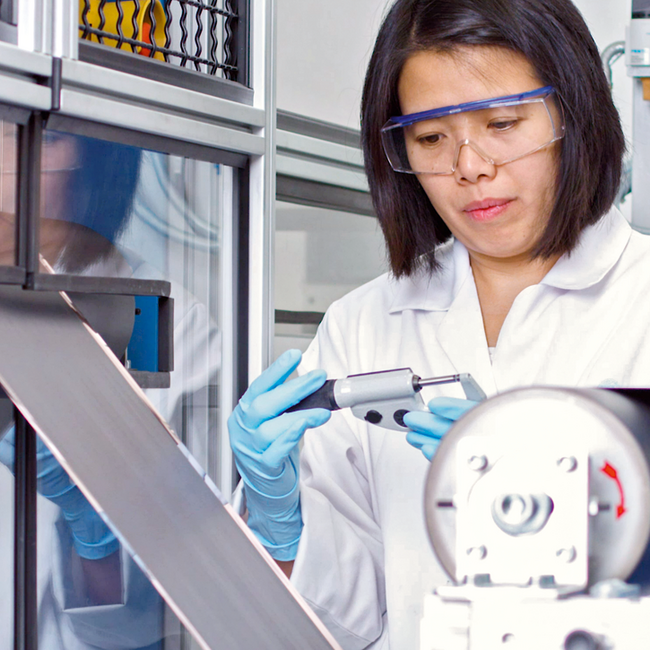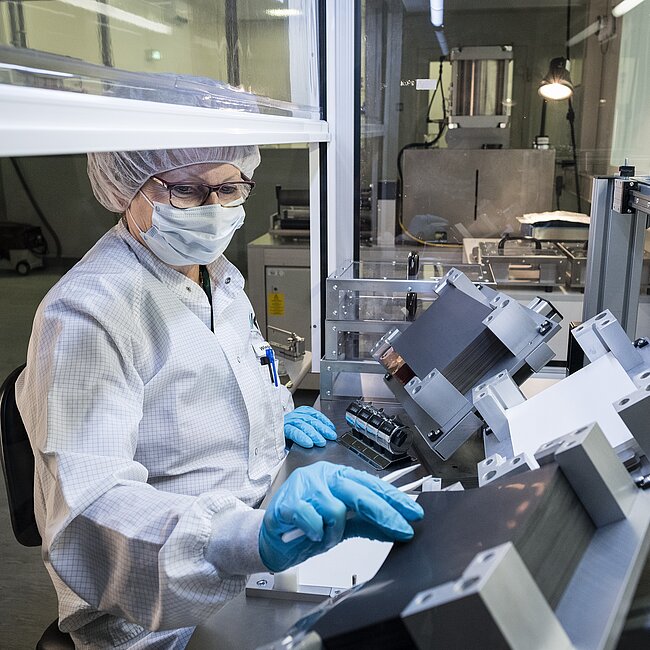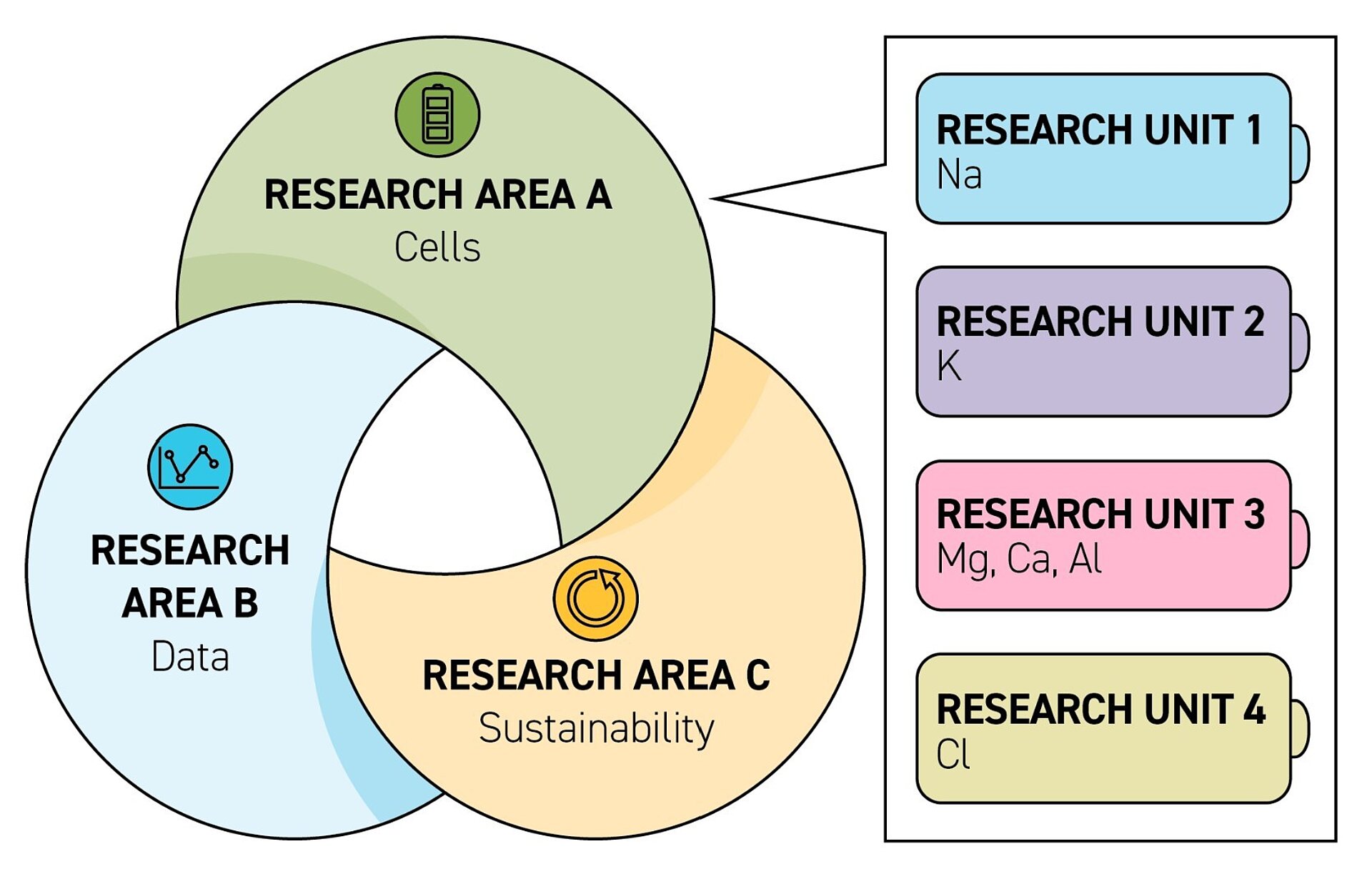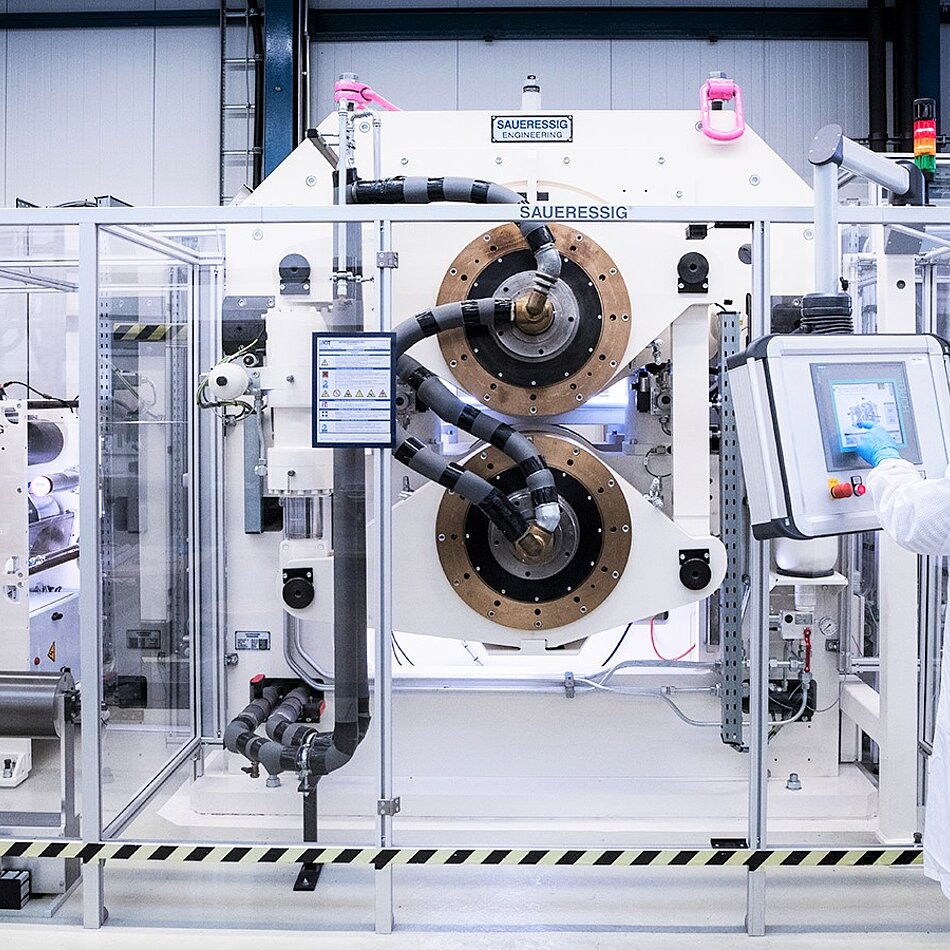Research

Research in the Cluster of Excellence POLiS
The Cluster aims at developing electrode materials and electrolytes that allow for sustainable systems based on Sodium, Magnesium, Calcium, Aluminium, and Clorine ions. Major obstacles for the development and use of post-lithium systems that need to be overcome are low ionic mobility in solids and liquids, lack of well-designed materials interfaces with suitable charge transfer properties, degradation of active materials and electrolyte, and lack of reversibility of charge- and discharge processes.
The major challenges of our research project are addressed in five research groups, which are dedicated to the four main topics Electrode Materials, Electrolytes, Interfaces, Integration & Sustainable Cell Technology and Cross-sectional Topics. POLiS follows a multidisciplinary approach, including solution and materials chemistry, electro-chemistry, predictive atomistic and continuum modelling, as well as chemical and process engineering. Arising concepts for materials design will be validated in full battery cells, examining performance, sustainability and safety issues.
The responsible and far-sighted handling of digital research data is becoming increasingly important. Managing, storing, exchanging and making accessible large amounts of data, including the corresponding metadata and ontologies, is a major challenge. The Cluster Office, in particular the Research Data Handling Officer, supports researchers in all questions relating to the handling of research data. In workshops, the researchers learn, among other things, how to make research data digitally accessible according to the FAIR principles.
The data exchange and analysis platform Kadi4Mat (Karlsruhe Data Infrastructure for Materials Science), which is developed as part of several research projects at the Institute for Applied Materials (IAM-MMS) at the KIT, is made available to the researchers to manage their digital research data. User-specific workflows or electronic lab notebooks can be easily integrated using a plug-in infrastructure. A central storage system is provided to promote the collaboration among researchers and to facilitate fast analysis of large amounts of data.
Thanks to the close contacts of its researchers to industry, the Cluster of Excellence offers the best conditions for successful knowledge transfer of its developments to industry. At the same time, POLiS benefits from the know-how of its industrial partners in order to be able to conduct research as close as possible to applications.


 Eberhardt | Uni Ulm
Eberhardt | Uni Ulm
 Markus Breig | KIT
Markus Breig | KIT
Research Areas

Some of our research highlights:
- Counteracting hidden side reactions in SIBs
- Descriptors for ion mobility
- Development of first air-stable Cl-ion-conducting solid electrolyte
- Efficient Mg and Ca electrolytes
- Materials Acceleration Platform (MAP)
- Organic electrode materials
- Polymer-based solid-state Potassium-Ion Batteries (PIBs)
- Stable anodes for Na-metal batteries
- Stable Ca metal batteries
- Sustainability screening and life-cycle assessment



